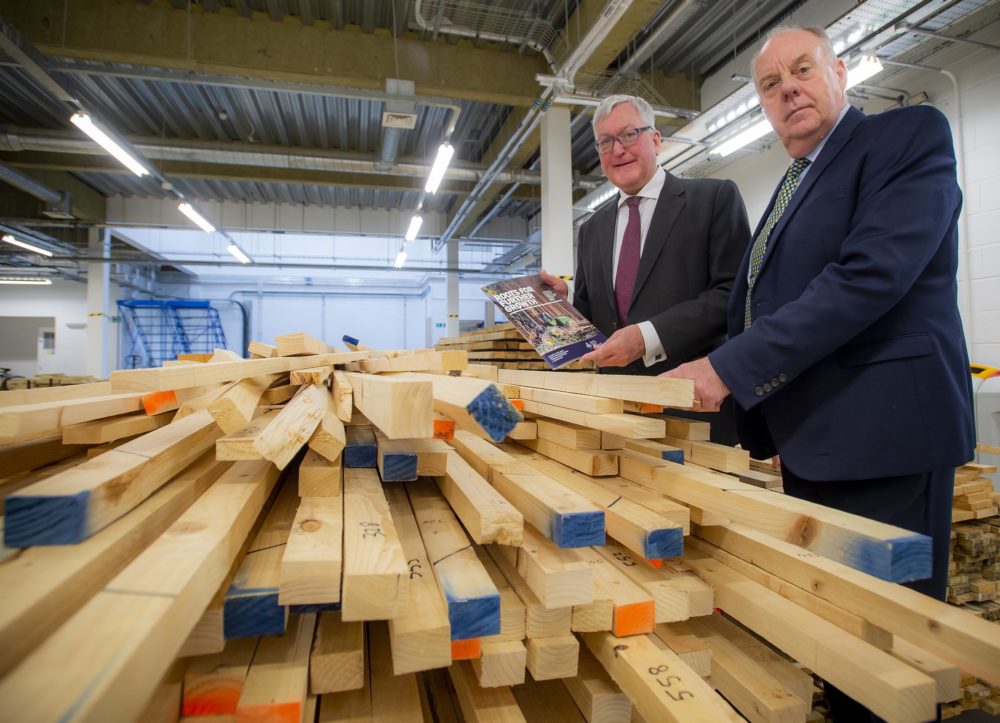Strategy aims to boost economic growth
A new ambitious forest industries strategy published today aims to double the sector’s economic growth to £2 billion a year by 2030.
Launched by the Scottish Forest and Timber Technologies Industry Leadership Group (ILG), the “Roots for Further Growth” strategy sets out a long-term vision for economic growth up to 2030.
The strategy has five strategic priorities:
- Maximise the economic outputs of Scotland’s forest and fibre resource.
- Improve the safety and efficiency of the wood fibre supply chain.
- Expand markets and add value.
- Develop a workforce with skills for the future which supports inclusive growth.
- Understand and communicate the forest and wood-based industries’ contributions to Scotland’s economy.
Chair of the ILG and Chair of the BSW Timber Group, Martin Gale CBE, presented the strategy to Fergus Ewing, Rural Economy Secretary, during a visit to Edinburgh Napier University’s, Institute of Sustainable Construction, where they witnessed some structural testing of potential new wood products.
Mr Gale said: “I am delighted to launch the Roots for Further Growth strategy. The Forest and Timber Technologies sector is an important sector for Scotland’s economy.
“Over the last decade the sector has grown significantly and our ambition is to double our contribution to the Scottish economy by 2030.
“The potential of a sustainable natural material like wood fibre is an exciting one in a low carbon future world, offering opportunities to sequester and store carbon, substitute high embodied energy products and even provide a feedstock to replace fossil fuel derived products.
“All these outputs, and more, can provide significant economic and environmental benefits for the people of Scotland to 2030 and beyond.”
Welcoming the strategy, Mr Ewing added:
“This is an ambitious and forward thinking strategy. The outputs of these forest industries are very important to Scotland, contributing significantly to our economic sustainable and inclusive growth in the rural economy and delivery of our climate change plans.
“In response to the healthy forecasts of increased wood fibre availability, the sector has invested heavily over the past 10 years to achieve world class wood processing facilities. This in turn has created many new jobs, often in the more fragile rural communities.
”The strategy and its associated actions are a welcome addition to our shared national endeavour to grow and make the most of our precious forests.”
The Roots for Further Growth strategy covers the wide-ranging economic and business activities of the forest industries sector. This includes domestic and imported wood supply chains, engineered wood products and systems, recycled wood and wood energy. It also offers opportunities for new green industries such as wood-based biotechnologies
The forest industries sector contributes significantly to Scotland’s climate change mitigation by sequestering carbon in sustainably managed forests. The timber used in construction also locks up carbon in wood products.
The strategy also includes a detailed Action plan showing how all the priorities will be achieved in partnership with others, including Scottish Enterprise, Highlands and Islands Enterprise, Forestry Commission Scotland and Skills Development Scotland.



